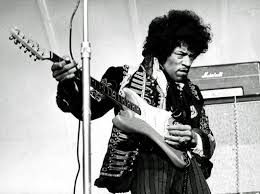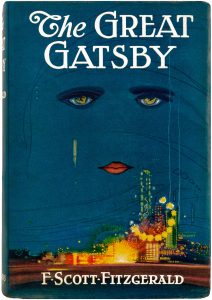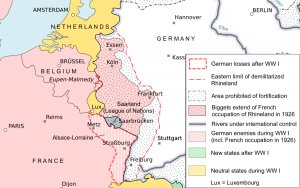Jimi Hendrix stands before over 200,000 people about to make musical history. It’s 1969, in the middle of the war in Vietnam. The Vietnam War was one of the bloodiest in this nation’s history, people who went to Vietnam often returned in a damaged state, if they returned at all.1 At the time, the presidential approval rating in the war was only around 39 percent, and Jimi Hendrix prepared to demonstrate his opinion of the war with his rendition of the National Anthem.2

Before Hendrix was a famous musician, he was in the military. He was honorably discharged due to an ankle injury. He had signed up for one year, however, while on duty, he couldn’t hold intelligent conversations, fell asleep, and was more focused on his guitar than his work. After he was discharged, he shifted his focus completely to his guitar. Soon after, his music career took off and he released “Hey Joe” with his band The Jimi Hendrix Experience. He quickly rose to fame, and soon after he was headlining his own tours and selling out massive shows. 3
Rain delays caused Hendrix to play on Monday at Woodstock that year. While he was offered an opportunity to perform at midnight, he chose to play the next morning. Even though Hendrix passed on the opportunity to play in front of the massive crowds that were still there at midnight, he still played for dedicated fans. However, he didn’t come for the fans, he came for the experience. Hendrix’s performance was shaped by the the current state of the Vietnam War, which was at its peak when he played. Hendrix’s music was also shaped by his complete unwillingness to conform, he refused to be a part of normal society, and he refused to support the war.4 Over 58,200 American soldiers died in the Vietnam War, and many of the people in the United States didn’t know why the nation was fighting, and many just wanted peace. This political context fueled Hendrix’s passion-filled performance which lasted over two hours, and included an encore. Encores were rare for Hendrix, and so concert-goers were ecstatic.

The performance included a medley of some of his songs, and in the middle of this is when he made musical history. Jimi Hendrix played a solo version of the National Anthem. His rendition included many parts of the song where he misplayed the song on purpose. He dragged out the notes for “the bombs bursting in air,” showing that the Star Spangled Banner talks about America’s history involving many wars. He also misplayed the notes for “home of the brave,” drawing to question why we call the men fighting a war with very little acceptance in our country heroes. Because he was in the military, he knew how the system worked, and he didn’t like it. He also added in parallels and similarities to the song “taps,” to show the amount of death the country had seen, as if to ask “is it worth it”? He purposely dropped the notes and let them come out unclean and muffled. He wanted to display that even something as patriotic as the National Anthem glorified our nation’s destructive ways of solving international issues. He did this by accenting the notes where this was prevalent and bringing attention to them. The audience had mixed reactions however. While many of them saw the passion-filled protest he was trying to portray, some of the fans were appalled by how he played the national anthem. People wrote to media networks saying that what he did was a disgrace. His performance was a polarizing force, he was able to both unite people behind him and the war protests, as well as causing people to speak up against the desecration of our National Anthem.5
Hendrix made music history because he had so many fans, and he was able to actively voice his opinion without using words. Whether you agree with his protests or not, he was very successful at gathering a crowd and influencing their thoughts.6

- “PART IV: TO LIFE: War = Killing,” AirWAVES (May 1999): 235–36. ↵
- W. Dennis, “Ritual Behavior and Consumer Symbolism,” ACR Special Volumes, (January 01, 1984): 279-284 ↵
- Andy Bennet, “Remembering Woodstock,” Taylor & Francis Group, (September 29, 2017): 1-4 ↵
- Wendy Smith, “Rock of Ages: Forty Years after Their Deaths, Jimi Hendrix and Janis Joplin; Now Seem Part of the Mainstream Culture They Rebelled Against.” American Scholar, 79 no. 4(2010): 89–92. ↵
- Clague, Mark. “‘This Is America’: Jimi Hendrix’s Star Spangled Banner Journey as Psychedelic Citizenship.” Journal of the Society for American Music 8 4(2014): 435–78. ↵
- Anne-Marie Morrissey, “Beyond the Image: The Giftedness of Jimi Hendrix,” Roeper Review 24 no. 1( 2001): 5. ↵



56 comments
Shriji Lalji
A very interesting article in my opinion. Although I am an avid fan of Hendrix’s music, I was not aware he was in the military. This situation reminds me a lot of athletes taking a stand, due to unfair racial treatment, and kneeling during the national anthem. In any case, behaving differently during the national anthem takes a tremendous amount of courage. More-so the athletes or Hendrix acting differently towards the national anthem goes to show their deep concern with the country’s direction during certain times. However controversial, people retain the right to express their concerns. Thus exercising it is inspirational, at least in my view.
Eliezer Leal
This was an interesting article. Jimi Hendrix was a very famous guitarist as stated in the article, and his protest was one of the most creative and unforgettable ever. He knew what was wrong with this system because he was apart of it and wanted it to change. like any protest his had backlash but every protest has a message to send and by reading this article its clear that his message got through.
Michael Lazcano
Before reading this article I had only listened to a couple of performances that Hendrix had back in the day but never really looked into him as an artist, heck I saw one of his most famous guitars In the MET back in June. When I saw this was covering the Star Spangled Banner performance I was immediately met with a smile, even though I’m not huge on his music I still know of this legendary, and at the time controversial performance.Thinking about it even more I think if something like this happened today it would have been received better because of the way millennials accept everything, but some older people may not have. Our nations anthem is something held in such high regard, even though time and time again people miss the mark on it, the meaning of the anthem has changed in meaning and this musical protest was more than just a performance.
Briana Montes
I never really listened to Hendrix or knew anything about him before this article. I found out he was a motivator and I think that is so great. His music is pretty nice after reading this I listened to his music and the way he played the guitar was beautiful. Overall, very well written article and I learned more about him than I knew.
Eloy Cruz
This immediately caught my attention because I had heard of Jimi Hendrix but I had never heard him actually play. I immediately went on YouTube to look for this video and I must say that it was bizarre to listen to the advanced level of guitar, BUT I admire Hendrix for voicing his opinions through something as influential as music. I never would have thought that the Star Spangled Banner would be used so forcefully to make a point.
Jake Mares
If nothing else, Hendrix was a motivator. His inspirational meaning behind his music would go on to impact musicians for decades after his career. Some of my friends still say he is and always will be the greatest guitarist to ever live. The example of the warped National Anthem shows how respected he was because if someone tried something as bold as that today, people would be outraged.
Jacob Silva
I’ve always known the name Jimi Hendrix, that he’s regarded as one of the greatest musicians of all time. I’ve only recently began to listen to his music and I do understand why he’s held to this level. This article is very good in the sense that I was able to get more insight on what Hendrix was like, how he was able to convey his thoughts and opinions through his music and how he could reinterpret existing music such as the national anthem.
Mia Correa
I was born in 2000, so I had only really ever heard of the name Jimi Hendrix. Reading this articled surprised me because I never really imagined famous musicians to be veterans. It’s really cool that Jimi Hendrix brought aspects of his patriotism into his music and into his shows because the only other artist I’ve seen do that is Toby Keith, who is also a veteran.
Jose Chaman
I did not know that Jimi Hendrix used his performance in Woodstock to protest against the Vietnam War. The fact that he used the National Anthem as a way of expressing his feelings about what was happening in Vietnam is just amazing. In these times is really hard to find musicians that can do what Hendrix did. He not only revolutionized the music but the way of protesting! Also, I did not knew that he was in the military neither that he was discharged. I loved this article, very brief but objective.
Nicholas Hatch
This article was very informing and interesting. I always knew who Jimi Hendrix was, but never did I truly know who he was. I think it is very important that this article talks about how Hendrix was able to use his talents to purposely warp the National Anthem. I like how this shows how peaceful and creative Hendrix was with his protests. One of the most interesting things this article taught me, was that Hendrix actually was in the Army and was discharged after an ankle injury and being unfocused. Good informative article!